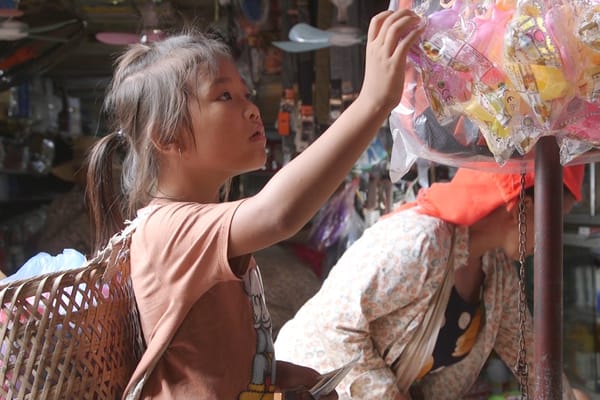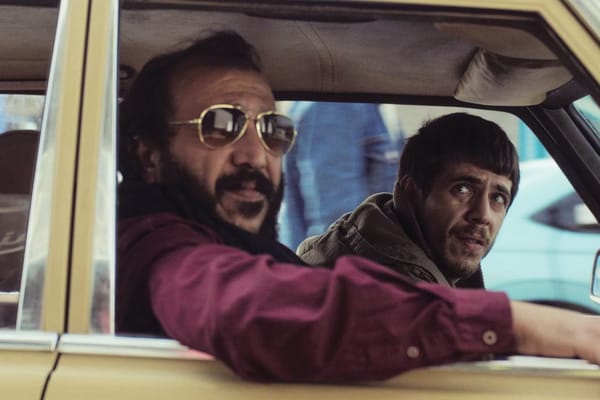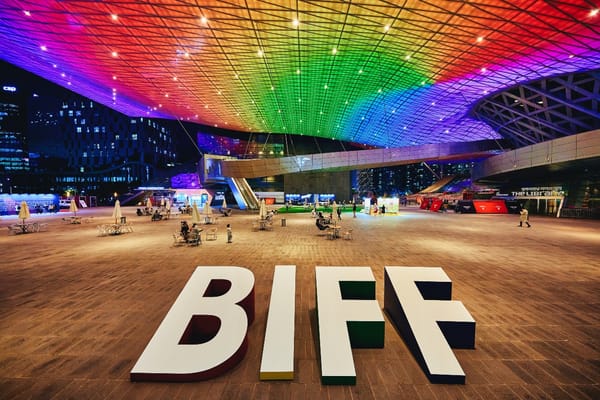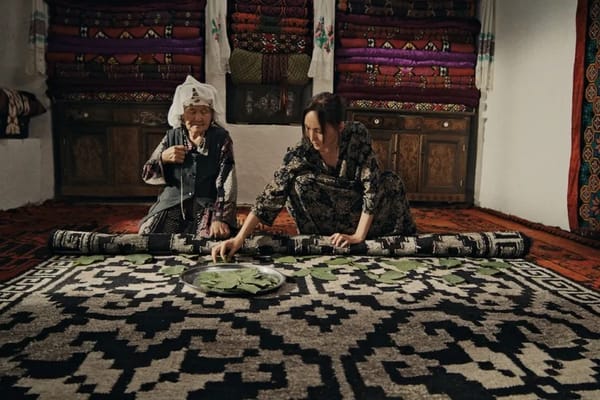Doha Film Institute Autumn 2023: Funding News
Qatar’s Doha Film Institute selected 44 titles for its 2023 autumn funding round, including 33 features, two TV series in development and nine shorts.
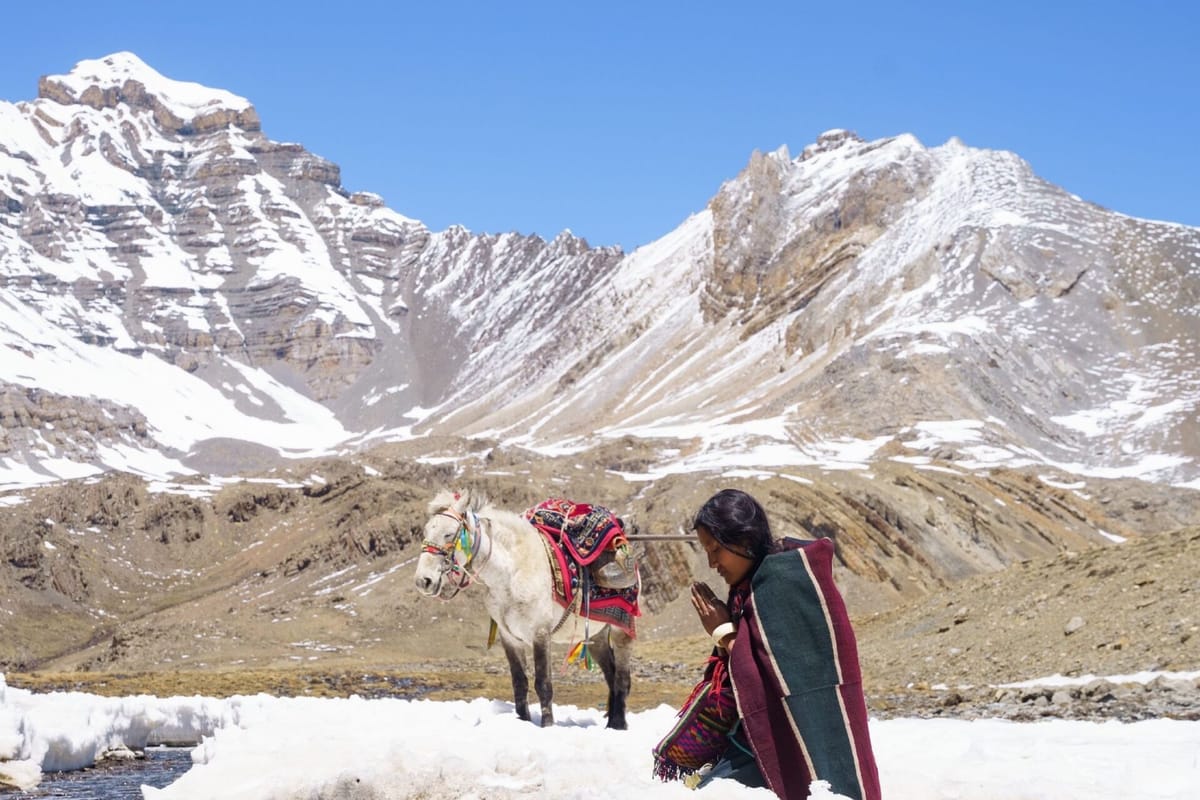
Qatar’s Doha Film Institute (DFI) selected 44 titles for its 2023 autumn funding round, including 33 feature films, two TV series in development and nine shorts.
Selected titles hail from 32 countries, including Afghanistan, Palestine, Saudi Arabia and the US, among others. Five of the projects are from Qatar-based filmmakers, while 20 of the grant recipients are women filmmakers.
"The volatility of today’s economic, social and political conditions adversely impacts the support for creative talent, especially for independent voices in cinema with limited access to film finance," said DFI CEO Fatma Hassan Alremaihi. "We are on a mission to identify and support these voices because we believe that their stories mirror the harsh lived realities of many communities through creative visions that need to be realised."
The 2024 edition of Qumra, the DFI’s project incubator, is scheduled to run March 1-6.
DOHA FILM INSTITUTE AUTUMN 2023 FEATURES:
MENA – Feature Documentary – Development:
Après Tahar (Algeria, France, Qatar)
By Soufiane Adel is the story of the director’s large Algerian immigrant family against the backdrop of his grandfather, an infantryman in the French Army in Indochina.
In The Shade Of A Royal Palace (Egypt, Qatar)
By Hend Bakr, the director attempts to discover her family history as ‘the people of the cabins’ through her musician father.
House No. 7 (Syria, Qatar)
By Rama Abdi is a creative documentary in which three girls meet and rent rooms in an old Damascene house after escaping their abusive family homes.
My Mother & I (Iraq, Egypt, Qatar)
By Dilpak Majeed is about a woman in her seventies who is deeply connected with her sheep and embarks on a journey when her mother falls ill.
MENA – Feature Documentary – Production:
Khartoum (Sudan, UK, Qatar)
By Miss R, Mr. S, Mr. and Mr. T is about a street boy, a civil servant, a tea lady and a medic, whose lives are woven together in peace and war.
In The Name Of Safia (Algeria, Belgium, France, Qatar)
By Safia Kessas unravels the story of the Algerian War of Independence, drawing out the threads of memories blurred, forgotten, and silenced by the ferocity of arbitrariness.
Niemeyer 4 Ever (Lebanon, France, Germany, Qatar)
By Aurélia Makdessi is about the now-shuttered International Fair created by Brazilian architect Oscar Niemeyer and the local Lebanese who attempt to rehabilitate his imagined utopia.
MENA – Feature Documentary – Post-Production:
Abo Zaabal 1989 (Egypt, Germany, Qatar)
By Bassam Mortada, in which the filmmaker explores his father’s arrest and torture in 1989, reconstructing the experience that traumatized and divided his family.
Sudan, When Poems Fall Apart (Tunisia, France, Qatar)
By Hind Meddeb is a portrait of Sudan as a poem as well as a love letter to the country’s reassembled fragments of an ongoing revolution.
Jodari Meno (Qatar Italy, Zanzibar)
By Jamal Al Khanji and David Ochoais is about a Qatari spear fisherman who embarks on a journey of self-exploration by chasing his dream of catching a once-in-a-lifetime fish.
MENA Established Directors Post-Production:
2G (Algeria, Switzerland, Qatar)
By Karim Sayad is set in Agadez in 2021; following the ban on unlawful migrant transportation by the Niger government, four former smugglers struggle to make a living by embarking on a journey through the Sahara.
Arkala Gilgamesh’s Dream (Iraq, UAE, France, UK, Qatar)
By Mohamed Jabarah Al Daradji is about Chum-Chum, a young, dreamy street kid who tries to convince his best friend, Moody, and a group of street children that the legendary Gilgamesh, King of Uruk, will help him bring his parents back to life from the underworld.
Non-MENA – Feature Documentary – Post-Production:
Blueberry Dreams (Georgia, France, Belgium, Qatar)
By Elene Mikaberidze is set amidst political and military tensions near the disputed Abkhazian state, where a Georgian family is staking its future on cultivating blueberry fields.
Naseem, Fight With Grace (UK, Qatar)
By Ana Naomi De Sousa is a story of second-generation British history and identity told through the perspective of British-Yemeni featherweight boxer Naseem Hamed, who became a world champion in 1995.
Hawa (Afghanistan, France, Netherlands, Qatar)
By Najiba Noori is about Hawa, who, after 40 years of arranged marriage, is eager to finally begin an independent life and become literate.
Holidays In Palestine (France, Palestine, Qatar)
By Maxime Lindon is about Shadi, a 30-year-old activist who returns to his native village in occupied Palestine to celebrate his French naturalization, while struggling with the guilt this entails.
Untitled (Myanmar, Qatar)
By Min Min Hein.
MENA – Feature Narrative – Development:
7 Waves (Qatar, Saudi Arabia)
By Hamida Issa is a magical realist tale inspired by local Gulf mythology in which Laila, a young Qatari-Saudi photographer, travels the world documenting culture.
Awdah (Palestine, Germany, Qatar)
By Ihab Jadallah is about Amal and Yousef, who hope for a happy family life after Ibrahim’s release from prison. However, Ibrahim’s past pains and struggles with reality threaten their dreams.
Bab El Sahra (Algeria, France, Saudi Arabia, Belgium, Qatar)
By Salem Brahimi, in which a gendarmerie’s brother returns to his hometown in the desert of an unnamed North African nation and sparks deadly events in a nearby mine - placing his brother in a dilemma between family and country.
Trouble Magnet (Palestine, Germany, Jordan, Qatar)
By Ahmad Saleh is about Ali, whose motto is ‘what doesn’t kill you gives you a story to tell.’ His overconfidence leads him into hilarious, albeit hazardous, situations.
MENA – Feature Narrative – Production:
Eldorado, The Taste Of The South (Morocco, France, Italy, Saudi Arabia, Qatar)
By Alaa Eddine Aljem is a dark comedy about a group of migrants who are looking to reach Eldorado, a secret utopian island where everyone lives in peace.
I Am Here but You Can’t See Me (Lebanon, Spain, France, Qatar)
By Feyrouz Serhal is a fantasy set in the fictitious city of Beirut about Viola, a musician and the leader of an underground movement that is assassinating its corrupt leaders.
The President’s Cake (Iraq, USA, Qatar)
By Hasan Hadi is about nine-year-old Saeed, who must use his wits to gather ingredients for the mandatory cake to celebrate President Saddam Hussein’s birthday or face the consequences – prison or death.
The Return Of The Prodigal Son (Palestine, Egypt, Tunisia, France, Qatar)
By Rani Massalha is about Salem, 25, a Copt working as a pig farmer in the rag-pickers district of Manshyet Nasser. When the swine flu virus appears abroad, psychosis takes hold of Egypt and puts Salem to the test.
The Dream Betrayed Me (Syria, France, Belgium, Germany, Qatar)
By Mohammad Shaikhow follows Mesto, a 17-year-old boy who has but one dream – to join his city’s football club in Qamishli, Syria, in 2004. A dream quashed by the fact that he is an undocumented Kurd.
MENA – Feature Narrative – Post-Production:
Wear & Tear (Tunisia, France, Belgium, Qatar)
By Sarra Abidi is about Ayda, a 40-year-old woman who has worked in a call centre for over ten years. Several events occur in her life, pushing her to reconsider her entire existence in all its emptiness.
Al Baseer – The Blind Ferryman (Iraq, Switzerland, Qatar)
By Ali Al-Fatlawi is about Ayoub, a blind ferryman who lives in the endless Iraqi marshes. One night, he falls in love with a mysterious woman. But no one believes she is real, and he must prove his love exists.
Non-MENA – Feature Narrative – Post-Production:
Celebration (Croatia, Qatar)
By Bruno Anković explores the life of Mijo and the circumstances that lead to an expansion of fascism and extremism both in history and today.
Demba (Senegal, Germany, Qatar)
By Mamadou Dia captures a civil registration officer at the town hall of his small city who struggles to overcome his grief. As his mental health deteriorates, he draws closer to his adult son.
Disco Afrika: A Malagasy Story (Madagascar, France, Mauritius, Germany, South Africa, Qatar)
By Luck Razanajaona is a story influenced by the moods and fashions of the 70s, inviting the audience to return to that era when many values and civic movements emerged.
Locust (Taiwan, US, France, Qatar)
By KEFF is set during the 2019 Hong Kong protests erupting across the strait, when a mute twenty-nothing in Taipei struggles to find meaning in the injustice of everyday life.
Shambhala (Nepal, France, Norway, Hong Kong, Turkey, Taiwan, US, Qatar)
By Min Bahadur Bham is set in a Himalayan village where a pregnant woman endures societal judgment about her child’s legitimacy. [PICTURED ABOVE]
MENA – TV Series – Development:
The Blue Weddings (Algeria, France, Qatar)
By Samia Dzaïr is set in France, where an Algerian family celebrates the union of their eldest son with a young woman from their community. The following day, he is found dead in the wedding bed.
My Sister And I (Syria, Saudi Arabia, Lebanon, Egypt, Qatar)
By Zaid Abu Hamdan is set against the backdrop of the establishment of female education in Saudi Arabia, with two sisters using education to escape crushing poverty and patriarchy.

